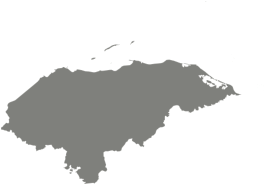In Honduras, Feed the Children works with children and their families in 10 communities to stop the cycle of poverty and encourage holistic community development. We implement livelihood projects that teach parents and caregivers ways to generate income by earning and saving their money. Our Village Savings and Loan (VSL) program encourages participants to save money and enables group members to take loans on an as-needed basis. The success of the VSL is a feeling of self-reliance and independence. We also offer vocational training in areas such as carpentry, welding, and woodworking.

On average, children receive only 6.2 years of schooling.
62.8% of the people in Honduras live BELOW the POVERTY LINE.
Population
9.1 Million
Children with stunted growth
23%
Babies born with a low birth weight
9%
Rural population without access to an improved latrine
41.2%
Country Profile
Honduras, the second largest nation in Central America, is a beautiful country with mountains, beaches, and ancient ruins. However, the country also has high rates of violence, extreme poverty and inequality. Many children lack proper access to nutritious food, healthcare, clean water, education and other basic needs – this is more prevalent in the rural areas.
Support Our Programs
We are excited about our work in Honduras. Feed the Children is empowering families and communities to overcome poverty and become self-sustaining. We are improving the nutritional status of children and mothers as well as increasing access to education and promoting healthy behaviors through training on water, sanitation and hygiene.
One of the ways our team in Honduras is accomplishing this, is by providing training on young child feeding practices through Care Groups. Care Groups is a peer-to-peer training methodology in which Feed the Children staff train ‘lead’ mothers on topics related to nutrition, health, and water. These mothers then train other mothers in their communities, increasing the reach and impact. One such training topic is focused on best practices around young child feeding. Mothers learn about proper breastfeeding, as well as choosing locally available foods to feed young children and ensure good nutritional outcomes.

